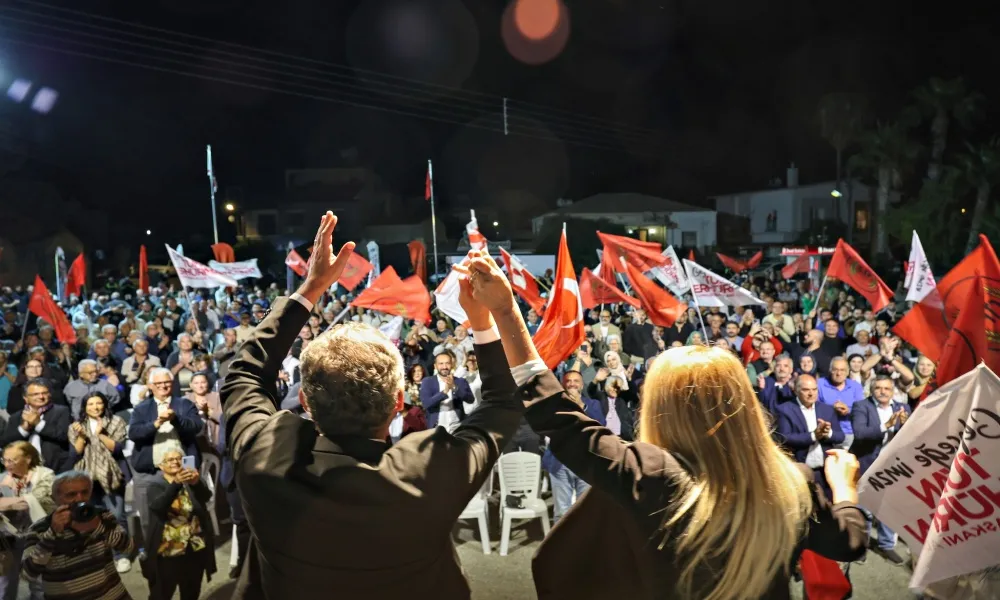The election of Tufan Erhürman to the leadership of the Turkish Cypriot community signals, for the first time in eight years, a potential exit from the long-standing deadlock in the Cyprus Problem. While concerns remain over Ankara’s true intentions, there is cautious optimism on the Greek Cypriot side that a new chapter may be opening - one with its sights set on a broader UN-led summit planned for November under Secretary-General António Guterres.
Erhürman is expected to formally assume office this coming Friday, following the conclusion of the three-day appeal period and the official publication of the result in the "Official Gazette" of the so-called “TRNC”.
Holguín returns
UN Secretary-General’s personal envoy, María Ángela Holguín, is expected in Cyprus within days to finalise preparations for the next five-party meeting on the Cyprus issue. Unlike previous rounds that focused on Confidence-Building Measures (CBMs), the upcoming meeting, as confirmed by Nicosia, will address the core substance of the issue, following years of intransigence under Ersin Tatar.
The objective is to set the stage for a resumption of negotiations from where they left off in Crans-Montana in 2017. Deputy Government Spokesperson Yiannis Antoniou told Politis that Nicosia is “awaiting Ms Holguín to determine a date for the new expanded meeting,” and that “practically, we expect the process to move forward within weeks.” Within this context, President Nikos Christodoulides is said to be preparing new initiatives aimed at capitalising on the more moderate tone ushered in by Erhürman’s election.
Positive signs
Political leaders across the spectrum welcomed Erhürman’s victory, viewing it as a potential return to the agreed framework of a Bizonal Bicommunal Federation (BBF).
DISY leader and House President Annita Demetriou described the result as a “positive message” from the Turkish Cypriot community, stating that “Turkish Cypriots turned their backs on the two-state solution.” She congratulated Erhürman and expressed hope that his election “opens the path for meaningful negotiations within the agreed framework.” Demetriou also stressed that the Greek Cypriot side must “remain firm in its positions and work toward ending Turkish intransigence,” noting it is significant that such intransigence may no longer characterise the Turkish Cypriot leadership.
AKEL General Secretary Stefanos Stefanou focused on the political message conveyed by the vote, noting that Turkish Cypriots “largely reject partition and the two-state model.” He added that “they want their own voice and do not accept total control by Turkey.” According to Stefanou, Erhürman’s election could help the UN pivot toward substantive negotiations, rather than CBMs, a shift already endorsed by UN Secretary-General Guterres. He urged the government to support the UN’s efforts and align clearly with the Crans-Montana framework, reiterating AKEL’s call for a meeting of the National Council to formulate a unified strategy ahead of the upcoming UN initiative.
DIKO leader Nikolas Papadopoulos also welcomed the removal of Ersin Tatar, “the chief proponent of the two-state solution,” and noted that electing a more moderate figure could indicate a willingness by Turkey to soften its stance. However, he warned against “illusions” over who ultimately sets Turkish policy on Cyprus, emphasising that talks must resume within the agreed UN framework and Security Council resolutions.
The Volt Cyprus party described the outcome as a “historic moment” and a “clear message in favour of peace, democracy and reunification.” It welcomed Erhürman’s stated commitment to resuming negotiations within a BBF framework and called on President Christodoulides to “respond with integrity and cooperation.”
Voices of concern
Not all reactions were unreservedly positive. The Cyprus Green Party-Citizens’ Cooperation expressed strong reservations, noting that the election was held “under the watch of occupation forces and with the participation of settlers,” thus distorting the outcome. The party expressed disappointment that the Republic of Cyprus had once again failed to highlight these “undeniable facts.” It further questioned whether Erhürman would be able to break free of Turkey’s control on key issues such as settlers, troops, and guarantees.
Meanwhile, EDEK leader Nikos Anastasiou took a more sceptical view, pointing out that Erhürman has himself acknowledged that “no solution is possible without Turkey’s consent.” He reiterated that “the Cyprus Problem is not an intercommunal dispute but a matter of invasion and occupation,” and called for the issue to be framed accordingly on the international stage.
